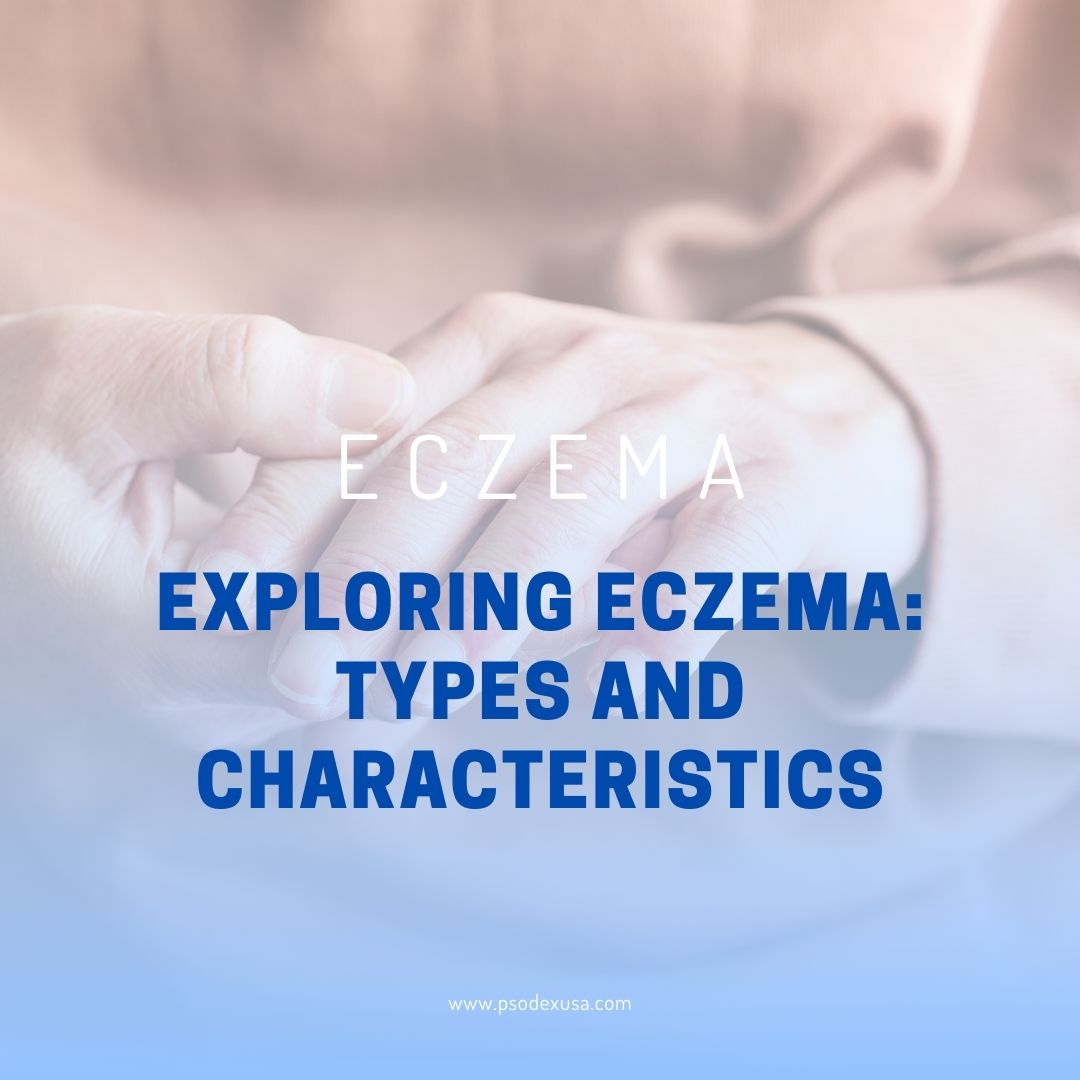Exploring Eczema: Types and Characteristics

Eczema, known medically as atopic dermatitis, is a multifaceted skin condition with various manifestations. While it affects millions of people worldwide, not all eczema is the same. In this article, we will explore the diverse forms of atopic dermatitis, shedding light on the unique characteristics that distinguish one type from another. By understanding the varieties of eczema, individuals can navigate their condition more effectively and receive targeted treatment.
1. Atopic Dermatitis: The Most Common
Atopic dermatitis is the most prevalent form of eczema. It is often found in individuals with a family history of allergies or asthma. This type of eczema typically manifests as intensely itchy, inflamed skin. The symptoms include redness, dryness, and the development of small, raised bumps.
2. Contact Dermatitis: Triggered by Irritants and Allergens
Contact dermatitis, on the other hand, is driven by irritants or allergens that come into direct contact with the skin. This form of eczema results in localized redness, itching, and rash. Common culprits include certain soaps, detergents, or plants like poison ivy.
3. Nummular Dermatitis: Recognized by Circular Patches
Nummular dermatitis is characterized by its unique appearance: round, coin-shaped patches of irritated skin. These patches can be itchy and prone to secondary infection. This form of eczema is more prevalent in older adults.
4. Seborrheic Dermatitis: Affection for Oily Regions
Seborrheic dermatitis often occurs in areas with abundant oil glands, such as the scalp, face, and upper chest. It leads to flaky and scaly skin, often with a greasy appearance. For many, this type of eczema can be a recurring issue.
5. Dyshidrotic Eczema: Blisters on the Hands and Feet
Dyshidrotic eczema is a distinctive type characterized by small blisters that typically appear on the hands and feet. These blisters are itchy and can be quite uncomfortable. While the exact cause remains unclear, this form of eczema is linked to factors like stress and allergies.
6. Stasis Dermatitis: Circulatory Connection
Stasis dermatitis is associated with poor blood circulation in the legs, often stemming from underlying conditions like varicose veins. This form of eczema results in swelling, redness, and skin changes in the affected areas. The skin may become fragile and more prone to injury.
7. Neurodermatitis: Result of Repetitive Scratching
Neurodermatitis is a unique form of eczema triggered by repetitive scratching or rubbing of specific areas of the skin. This leads to the development of thickened, leathery patches, which are often intensely itchy. Neurodermatitis is closely linked to psychological factors and stress.
Understanding the Importance of Accurate Diagnosis
Accurate diagnosis is essential in distinguishing one type of eczema from another. A dermatologist can identify the specific type of eczema by examining the appearance of the affected skin, taking into account your medical history and potential triggers.
Tailored Treatment for Eczema Varieties
Treatment for eczema can vary depending on the specific type. A dermatologist can recommend a tailored approach to manage your condition effectively. Some common treatment options include:
- Emollients: Regularly moisturizing your skin is a fundamental aspect of eczema management for all types.
- Topical Steroids: These medications can help reduce inflammation and itching during flare-ups.
- Antihistamines: Oral or topical antihistamines may provide relief from itching and discomfort.
- Topical Calcineurin Inhibitors: Medications that reduce inflammation without using steroids.
- Systemic Medications: In severe cases, your healthcare provider may prescribe oral or injectable medications to manage symptoms.
- Wet Dressings: Applying wet dressings to the affected skin can provide relief and hydration.
- Phototherapy: Controlled exposure to UVB light can help reduce symptoms, particularly in specific types of eczema.
Navigating the Diversity of Eczema
Understanding the diversity of eczema is key to effective management and treatment. By recognizing the unique characteristics of various eczema types, individuals can work with their healthcare providers to develop tailored strategies for symptom relief and long-term skin health. Remember that you’re not alone in this journey, and with the right knowledge and support, managing eczema is indeed possible.
Helpful Links:
National Eczema Association (NEA):https://nationaleczema.org/
American Academy of Dermatology (AAD):https://www.aad.org/
Mayo Clinic:https://www.mayoclinic.org/
WebMD: https://www.webmd.com/
eczema.org: https://eczema.org/
Keywords:
Eczema, Atopic Dermatitis, Eczema Treatment, Eczema Symptoms, Eczema Causes, Eczema Management, Eczema Relief, Eczema Cream, Eczema Home Remedies, Eczema Skin Care, Eczema Rash, Eczema Diet, Eczema Causes and Triggers, Eczema Natural Remedies, Eczema Medications, Eczema in Children, Eczema in Adults, Eczema Prevention, Eczema Flare-Ups, Eczema and Allergies, Eczema Itch Relief, Eczema and Stress, Eczema Support Groups, Eczema Cream Reviews, Best Moisturizers for Eczema, Eczema-friendly Clothing, Eczema and Climate, Eczema Care Tips, Eczema and Skin Hydration, types of eczema, type of eczema, dyshidrotic eczema, eczema symptoms, symptoms of eczema, nummular eczema, eczema treatments, eczema causes, eczema causes, what eczema is, Eczema, Atopic Dermatitis, Eczema Treatment, Eczema Symptoms, Eczema Causes, Eczema Management, Eczema Relief, Eczema Cream, Eczema Home Remedies, Eczema Skin Care, Eczema Rash, Eczema Diet, Eczema Causes and Triggers, Eczema Natural Remedies, Eczema Medications, Eczema in Children, Eczema in Adults, Eczema Prevention, Eczema Flare-Ups, Eczema and Allergies, Eczema Itch Relief, Eczema and Stress, Eczema Support Groups, Eczema Cream Reviews, Best Moisturizers for Eczema, Eczema-friendly Clothing, Eczema and Climate, Eczema Care Tips, Eczema and Skin Hydration












